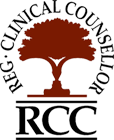There has been a major shift in the treatment of mild-to-moderate depression. The shift has been from prescription drugs to a routine and exercise.
Structure to one’s day – including regular healthy meals, regular bedtime, socialization and daily exercise – does wonders to help people, from teens to adults, deal with mild-to-moderate depression and anxiety.
Family doctors are being challenged to help their patients change to a healthier lifestyle. Medication should be the last resort not the first. Many patients suffering from mild-to-moderate depression will need help beyond the doctor’s office. Therefore, a referral to a Registered Clinical Counsellor who is solution-focused and skilled in Cognitive Behavioural Therapy (CBT) is a major step in the right direction.
To note, the Canadian Mental Health Association has the Bounce Back program. The focus of the program allows the individual to take responsibility for his/her health which includes gaining control over mild-moderate mood disorders.
An emphasis on routine, structure and real life social connections are key for any individual to manage their life effectively.
If you are suffering from mild-to-moderate depression, activate a daily routine. Here are 4 important tips that I give to my clients who are suffering from mild-to-moderate depression or anxiety:
- Eat healthy at regular intervals and cut back sugar intake;
- Get at least 20 minutes of exercise a day (walk, run, dance, skip rope);
- Join something – be part of a group, choir, running club, volleyball class, a volunteer group;
- Make healthy sleep a priority – have a regular bedtime and turn off technology at least 2 hours before going to bed.
Once you incorporate these tips into your lifestyle they become habits. Once these habits become your norm then you are better prepared to deal with the easy and difficult challenges that are part of life. The goal is to take charge and manage your life effectively.
NOTE: for more severe cases of anxiety and depression, medication may be necessary. A good rule of thumb to consider when addressing mental health issues is: seek counselling help, if necessary medication with counselling help and never medication alone.
Photo courtesy: Utahwildflowers






